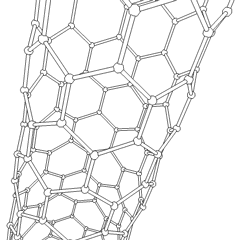 One of my friends many years ago asked me if I'd heard of Konstantin Tsiolkovsky. I hadn't. Being an ardent devotee of science fiction, she had not only heard of him but was a great admirer of his forward thinking work. Here's a brief run-down:
One of my friends many years ago asked me if I'd heard of Konstantin Tsiolkovsky. I hadn't. Being an ardent devotee of science fiction, she had not only heard of him but was a great admirer of his forward thinking work. Here's a brief run-down:
- Born 1857 in the Russian Empire, died 1935.
- Theoretical engineer/physicist/futurist.
- Substantially self taught, as a result of childhood deafness.
- Having seen the Eiffel tower (which was the tallest building in the world at the time) dreamt up the idea of a Space Elevator.
- Wrote the first academic treatise on rocketry.
- Postulated that in order to acheive orbital velocity, a multistage rocket fuelled by liquid hydrogen and oxygen would be needed.
- Just generally a man well before his time.
For those that don't know (and want to), the space elevator is a theoretical device for transporting objects into orbit cheaply without the need for rockets etc. The basic setup is a huge cable stretching from the earth into space. As long as the centre of mass of the cord is at the right distance from the earth, it will stay in geostationary orbit and so remain taught on its own. Check out the picture (taken from here).
The great advantage of something like this is that once buit, it would eliminate the need for rockets when launching satellites into orbit thereby cutting down significantly on costs. The main barrier to the practicality of such a scheme as far as I am aware is one of materials. In order for this to be practical in any way, an incredibly strong and light material would be needed for the tether.
Fear not! Over the past couple of decades, interest in so called carbon nanotubes has exploded. These are allotropes of carbon (like graphite, diamond, buckyballs etc) which have a tublike structure posessing great tensile strength while at the same time being incredibly light. Unfortunately, as with most pipe-dreams, these are as yet impractical on a large scale, being quite tricky to manufacture even in small quantities... Oh well, we can dream (like Tsiolkovsky).
Unfortunately, as with most pipe-dreams, these are as yet impractical on a large scale, being quite tricky to manufacture even in small quantities... Oh well, we can dream (like Tsiolkovsky).
Some links:



No comments:
Post a Comment